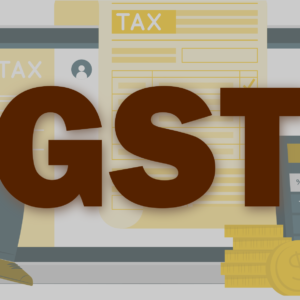
E-Commerce has taken prominence the world over and India is no exception to this fact. The E-Commerce business and market is constantly on the rise. This is due to the boom in smartphones and internet penetration with the number of internet connections being 830 millions as per 2021 data. The E-Commerce market was at US$ 46.2 billion in FY 2020 and is expected to grow to US$ 188 billion in 2025 and US$ 335 billion by 2030 (according to Grant Thornton). There is a lot of opportunity for E-Commerce players in India but it has been observed that the E-Commerce business in retail trade is highly monopolistic and therefore there are more apprehensions for the other stakeholders of the E-Commerce Ecosystem.
The E-Commerce ecosystem in India broadly consists of the following stakeholders:
- E-Commerce Marketplace Providers or E-Commerce platforms
- Consumers
- Sellers
- Government
The retail trade and E-Commerce is regulated by the Government of India in various modes like under GST law, FDI Regulations etc. With the arrival of E-Commerce in India, the Government had introduced and evolved the norms for governing the establishment and functioning of E-Commerce business in India. These legislative and policy norms are framed to achieve the following objectives:
- Consumer Protection
- Augmenting FDI in Retail and E-Commerce
- To protect the interests and survival of small retailers and shop owners from the large multinational Retail and E-Commerce players.
- To promote digitization in trade and payments
The above objectives are implemented through various policies and legislations under various Ministries and Departments of the Government of India. Looking at the objectives as stated above, it is obvious that they are competitive in nature as the Government has to protect the interest of all the stakeholders i.e. Customers, E-Commerce platforms and their investors as well as the sellers, especially the small retailers and traders.
FDI in retail and E-Commerce
Foreign Direct Investment (FDI) in India in Single Brand Product Retail Trading is 100% through automatic route with certain conditions as per the Consolidated FDI Policy 2020 issued by Department for Promotion of Industry and Internal Trade (DPIIT). Foreign Investment in Single Brand product retail trading is aimed at attracting investments in production and marketing, improving the availability of such goods for the consumer, encouraging increased sourcing of goods from India, and enhancing competitiveness of Indian enterprises through access to global designs, technologies and management practices. FDI in Multi Brand Retail Trading is restricted to 51% with additional conditions.
FDI in E-Commerce activities is 100% through automatic route and is permitted only in marketplace model of e-commerce with various conditions to be observed. FDI is allowed only in Business to Business (B2B) E-Commerce and not in Business to Consumer (B2C) e-commerce. FDI is not permitted in inventory-based model of e-commerce. The policy defines E-Commerce as buying and selling of goods and services including digital products over digital & electronic networks.
Protecting consumer interest
Consumer interests like quality of goods and services and data privacy are the main interests which the Government strives to protect. Legislation like Consumer Protection Act, 2019 and Rules made there under and The Information Technology Act, 2000 and rules are the instruments primarily deployed to protect these interests.
Concerns of Small Retail Traders with the rising dominance of E-Commerce in retail
As mentioned before, the opportunities in E-Commerce and the apprehensions of the stakeholders due to the monopolistic nature of this market. The rights of the consumers are protected through legislation by the government. Addressing the fears of Small retailers as well as the sellers on the E-Commerce platforms is a very complicated exercise for the Government. Too many constraints on the E-Commerce business will hinder the growth of digital trade and payments as well as the development of the E-Commerce business in India.
The Trade Bodies have raised several concerns of the small traders i.e. the brick and mortar shops and sellers on the E-Commerce platforms as a result of rising stakes of E-Commerce. Trade associations like CAIT has time and again represented the following issues with the Government in this regard:
- No Impact Assessment study of the impact of FDI in E-Commerce or Retail on the stakeholders and especially small traders should have been conducted before framing the FDI policies on E-Commerce and Retail.
- Currently, under the umbrella of e-Commerce business in India, the e-retailers are selling products much below the actual price of the manufacturer. This is possible only because of funding received from overseas. This is nothing but E-Commerce dumping. This practice creates huge distortions. The Government must put an end to this by issuing suitable guidelines, and follow its anti-dumping policies which are already practiced in other sectors.
- The global and other big players engaged in E-Commerce business in India are working with a mandate to control & dominate the retail trade and to convert it into a monopolistic market. The FDI component is creating an uneven playing field to the disadvantage of millions of small business enterprises.
- The e-retailers are engaged in predatory pricing policy and subsidizing the prices with a view to oust brick & mortar shops from retail trade. Though 100% FDI is allowed in B2B business model, it is well known that the e-retailers are engaged in B2C business by circumventing prescribed rules & regulations. This is evident from the fact that big advertisements have been inserted addressing directly to consumers. If it is a B2B model, then why are such aggressive advertising campaigns being conducted addressed to the consumer?
- In case if the government fails to distinguish between the technology provider vs a foreign investor who is investing in e-retail, this will mean global retail giants will invest in technology to sell their warehouse/store products to both offline and online customers. This is quite evident where some of the prominent e-commerce websites are openly flouting the norms and are resorting to predatory pricing and have resorted to a business model where on one hand they show financial funding in e-commerce platforms from overseas and retail selling of products by a different business entity. Due to existing policy on FDI in e-retail, venture capital funding is not allowed in e-commerce, some companies have registered themselves in another nation and have routed the money in India for its retail operations. Though many such companies are not making any profit till date, due to their strong financial base they are able to offer products at significantly lower price than their retail counterparts.
- E-Commerce platforms have access to data of their users and they use this data for their advantage as well as there is no control over the unauthorized use of such data. The offline small traders have no such advantage.
The much awaited National E-Commerce Policy
There is also anguish among these trade associations that the much awaited E-Commerce policy has not yet been introduced and implemented by the Government. The Government through the DPIIT had issued the draft E-Commerce Policy in 2019 for consultation with the stakeholders. The policy is yet to be introduced and there are various reasons for the delay. One among several of such reasons is that the subject matter of E-Commerce is under several ministries and departments of the Government of India like the Consumer Protection department, DPIIT, Information and Technology, Finance etc and hence the implementation of such policy will require a proper distribution and coordination among them.
Also, the government has to face the dilemma and to strive to maintain a balance between consumer protection, development of digital trade and to protect the small traders. Too many restrictions will strangle the growth of E-Commerce and inflow of FDI.
The trade bodies fail to see that the domestic E-Commerce platforms and investors also have their own deep pockets and they are equally capable of doing what the foreign investors are doing. The solution is to strike a balance. We cannot restrict the inflow of FDI nor can we restrain the organic growth of E-Commerce. The government should come out with a comprehensive E-Commerce Policy and should, at all cost, focus on maintaining certainty in its legislative measures as well as its policy towards E-Commerce and retail trade in order to attract FDI and for the growth in the Digital India mission.






